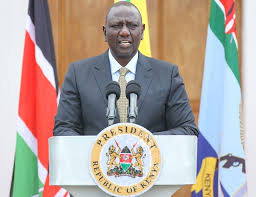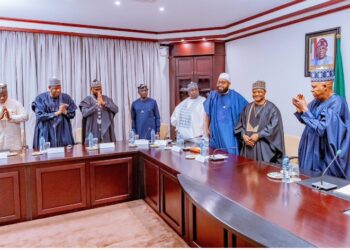Recently, the Muslim Rights Council (MURIC) raised an alarm over a purported plan by the Sokoto state government to depose the Sultan of Sokoto, Alhaji Muhammadu Abubakar III. Doubts over the allegation got cleared when Vice president Kashim Shettima lent credence to the MURIC’s allegation during the just-concluded North-west Peace and Security summit in Katsina, Katsina state. Shettima cautioned the Sokoto state government against such an act, stressing that the Sultanate is an institution that must be protected.
With the vice president confirming the allegations that agents of the Sokoto State Government are engaged in a scheme to depose the nation’s most revered monarch and leader of Nigerian Muslims, the need to halt the machination in order to avoid a repeat of the mayhem that trailed the 1996 dethronement of the 18th Sultan, Alhaji Ibrahim Dasuki, has become imperative.
Though the Sokoto State Commissioner for Information, Alhaji Sambo Danchadi, has explained that the law guiding the appointment of traditional rulers has been reviewed by the State House of Assembly, he outrightly debunked allegation of planned dethronement of Alhaji Abubakar, stressing that such an allegation is only imaginary. However, the Sokoto State Emirate Council Amendment Bill that has passed through the first and second reading, if signed into law, would, among others, could result in the reduction of the powers of the Sultan in appointing kingmakers and district heads.
More worrisome in the dialectics playing out in the planned deposition saga by a faceless group that has accused the Sultan of involving himself in partisan politics, ahead of the 2023 general elections elections. Without doubt, the current plan in reviewing laws relating to the emirate laws of Sokoto state may not be unconnected with the deliberate intention of curtailing the powers of Alhaji Abubakar whose sterling leadership trait in telling truth to power is known to have unsettled the political leadership in Sokoto state.
This plot to dethrone the Sultan is coming against the backdrop of current legal fireworks in Kano over the emirate tussle in the wake of the re-appointment of the 14th Emir of Kano, Muhammadu Sanusi II. Despite mediation efforts between top officials of the state government, including Governor Abba Kabir Yusuf, and the National Security Adviser (NSA), Mallam Nuhu Ribadu, the resolution of the tug of war is yet to be on sight. Many analysts contend that if the Kano emirate episode is not nipped quickly, it may culminate into an adverse fallout that could threaten law and order in the state.
At a period when political office holders are leaving no stone unturned to weaken the electoral prospects of their opponents in future elections, it should be noted here that traditional institutions should be insulated from the foibles of politicians who see nothing wrong in enthroning monarchs that could serve their interests, thereby overthrowing the basis of the traditional system that is predicated on non-partisanship and telling truth to power, no matter whose ox is gored.
When guardians of the traditional system are made to come under the control of politicians, the rationale behind their essence is eroded and compromised, as politicians would be set free to unleash their self-seeking agenda on the people. At a time when many state houses of assembly are only mere extensions of governors’ living rooms, allowing state lawmakers to provide enabling laws to dethrone or reduce powers of traditional rulers should not be allowed to be. There may be instances where traditional rulers have exercised their mandates beyond what is allowed in the law, but relevant laws should be put in place by the lawmakers to allow for appeals within the system for equity and justice.
When those who wield political powers are engaged in enthroning coercive culture for submission, it becomes a travesty of justice to allow political leadership to take effective control of traditional institutions, even when it does not serve the common good. When politics is allowed to coerce and superintend the nation’s traditional institutions, the roles of monarchs become imperiled as neutral arbiters.
To ensure that incessant distrusts between state governors and traditional rulers are eliminated, the traditional system must be shielded from partisan politics. Henceforth, governors should be committed to the goals of good governance and see the traditional system as a collaborating agent in providing the dividends of democracy. We, therefore, call on the Sokoto state government to remain within the borders of promoting healthy relations with the Sultan in advancing the welfare of citizens. Incessant conflicts between governors and monarchs are ill winds that blow no one no good.




